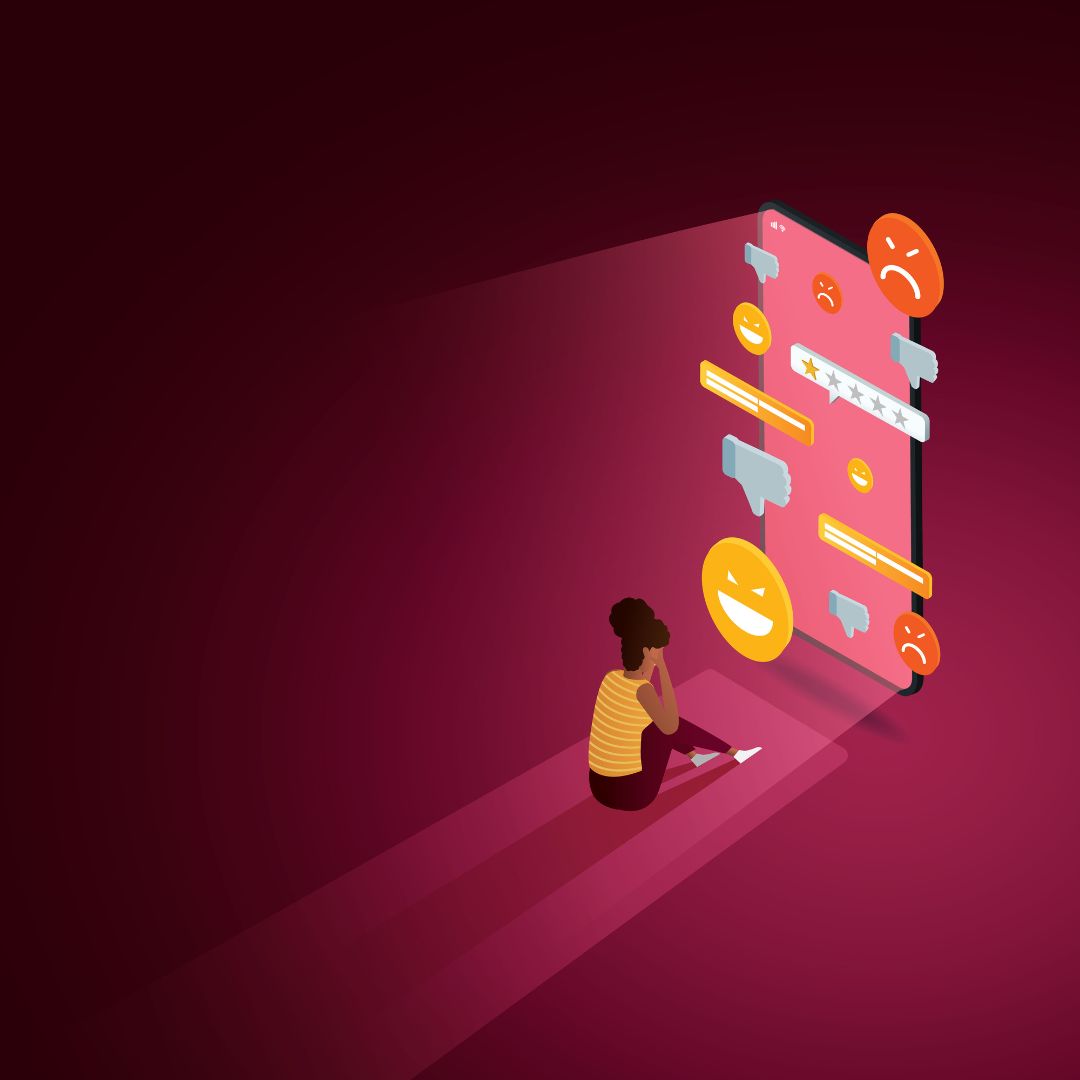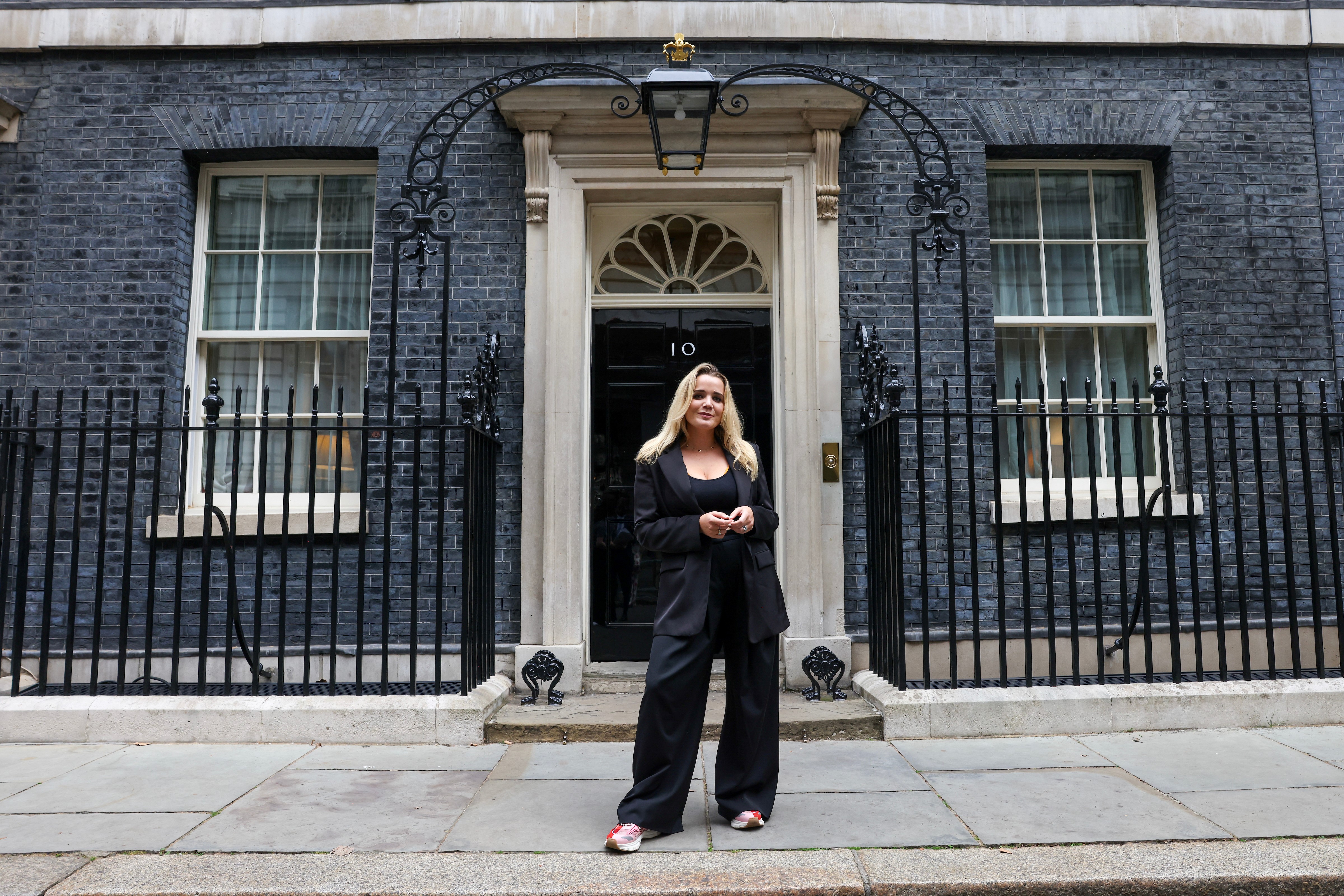
As part of our ongoing campaign for online safety, we're exploring the impact of online abuse.
New research by Apple as part of Safer Internet Day — a day dedicated to helping young people stay safe online — shows that while 41% of parents take charge and monitor their child’s screen time, they aren’t always aware of what they are viewing.
Three in ten 12 to 15-year-olds have said “they had seen something they found worrying or nasty online,” while a survey showed around one in five children aged 10 to 15 years in England and Wales have experienced at least one type of online bullying. Girls are significantly less likely to report this than boys.
As is so often the case, women and girls are disproportionately affected. Last year, law professor Olga Jurasz led the biggest-ever UK survey into online violence against women. Her findings revealed over one in 10 women in England have experienced online violence, and three in 10 women (30%) have witnessed online violence.
@theopenuniversity ♬ original sound - The Open University
Author and podcast host Emily Clarkson experienced cyberbullying first-hand. She was 17 when she was first targeted by online news sites and the trolls that hung out in the comment sections. “I received so much criticism about how I looked, about my weight, about my appearance,” she remembers, adding that the experience was “shocking and horrifying.”
It was really, really brutal. It knocked my confidence so much. My self-worth was in the bin. On my low days, I still hear those comments and remember those words.
Emily Clarkson

Like many young women and girls, Clarkson internalised her criticism and spent years believing the bullies were right. This correlates with Jurasz’s research, which looked at girl’s self-esteem following online abuse. “I think for a really long time, we’ve accepted this. And certainly that was my experience,” says Clarkson, who was told, “If you don’t like it, get off the internet.” Of course, just ‘getting off the internet’ is not an option. The UK has one of the largest online populations worldwide, not to mention around 62 million social media users. It’s not just a way of keeping in touch with friends and family (or checking in on exes, as was part of Facebook’s early appeal); it’s how we get jobs, find out what’s happening in the world, and make real-world changes.
Clarkson thinks an early mistake was not seeing the internet as a real place with real-world implications. For years, cyber bullying has been seen as inferior - something only millennial snowflakes are bothered by, despite Jurasz’s research showing that one in eight women in England who experienced online violence say this progressed to offline violence. “We've got to treat it as what it is, which is real. It's who we are. It's how we communicate,” she argues.
“Societally, we’re very accepting of women getting abused publicly,” notes Clarkson, who sees the online world as a microcosm of our offline world. She says we need to stop seeing the internet as “a beast unto itself” and realise that it’s just us electronically. No doubt, the level of anonymity and lack of accountability plays a role, but essentially, the internet is a reflection of society at large, and for years, violence against women has been left unchecked.
I think our behaviour and our appetite for watching women fail does contribute to the rest of our behaviour online.
Now a mother to a baby girl, she is anxious about the online world her daughter will one day join. “The most important thing I can do as a parent is be armed with as much knowledge as possible.” She wants to know exactly the landscape her daughter will be going into. “When we went into the internet, we learned to inhabit a world that no adult had been in, that our parents had not been in, and we got to know a world before they did.”
The internet has often been referred to as the Wild West — Esther Ghey referred to it as such on Sunday with Laura Kuenssberg — and for years, like the old frontier before it, the internet has largely been lawless. That is starting to change - incrementally, at least.
The Online Safety Bill was passed on 26th October 2023, making social media companies more responsible for users’ safety on their platforms. Emily and other public figures were part of a roundtable discussion initially held by former Digital Security Nadine Dorries about online safety. After years of feeling pushed to the shadows by bullies, Clarkson has made advocating for online safety the cornerstone of her career.
It was only in adulthood, it occurred to me how utterly tragic and devoid of joy and niceness your life must be that you would write those things about a child that you didn't know.
Though she feels confident about the bill and its impact, she cautions against resting on our laurels. When it comes to the Online Safety Act, she adds, “This is a much more powerful place to continue being vigilant and continue regulating and continue the hard work in this space”. It’s not a case of saying, ‘ok, the internet is safe now’; the bill needs to be seen as a launching pad for future regulations and initiatives. One such change we’re backing is supporting Esther Ghey’s petition to make phone companies even more accountable for the safety of users under 16 and introducing phones specifically for children that ban access to social media apps.
You can sign the petition here.







